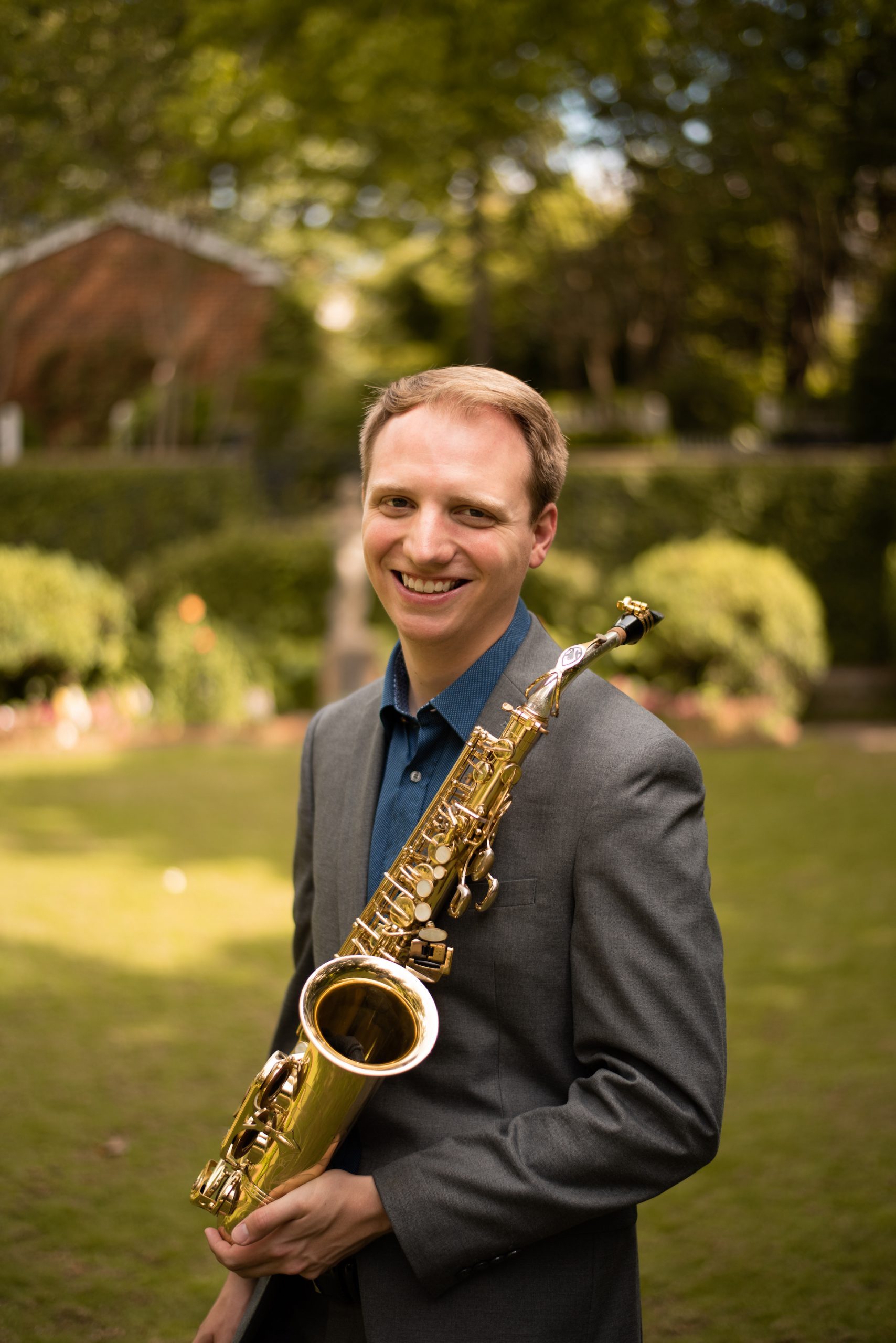Erik Elmgren, MM, 2017
Erik Elmgren believes that the role of artists in our society is to stand in the gaps of cultural, social, and ideological differences and create musical experiences that reaffirm our connection to our shared humanity. As an educator, writer, and saxophonist, Erik seeks to create artistic spaces grounded in belonging, trust, and imagination. Erik’s research and writing at the intersection of community arts practice and higher education is an ongoing and deep exploration into the role of community connection in training the musicians of the future. His work touches on elements of social work, nonprofit organization, teaching artistry, and music education to cultivate a holistic artistic practice that prepares musicians to become engaged citizens and transformative advocates for equity, inclusion, and healing within their communities.
Erik currently serves as the Assistant Dean of Community Engagement and Teaching Artistry at the New England Conservatory of Music. In this role, he helps oversee the school’s flagship Community Performances and Partnerships Program which works with conservatory students and community partners to create impactful programming throughout Boston. He is also deeply involved in community arts initiatives across the country, most notably serving as a frequent consultant for the work of Street Symphony in Los Angeles.
As alto saxophonist with the award-winning Fuego Quartet, Erik has performed on chamber music series and conferences around the world and has won top prizes at numerous international chamber music competitions, including the Fischoff National Chamber Music Competition, Plowman Chamber Music Competition, and the MTNA National Chamber Music Competition. Their debut album, entitled Migration, was released in 2019 under the PARMA Recordings label.
“I look back on my Eastman experience as the foundation for direction my professional and artistic life has taken. I was so fortunate to interact and learn from the students and faculty of the Eastman School during a time when I began to question my purpose as an artist. My studies in the arts leadership program and all the opportunities afforded to me as part of Dr. Lin’s saxophone studio helped me discover my interest in the artist as a catalyst for community change and empowerment. I am grateful for the Eastman Community, a group of learners and creative thinkers that persists even after you graduate, for supporting me during my time of exploration and their constant inspiration to find creative solutions to the challenges facing artists in our society today.”
